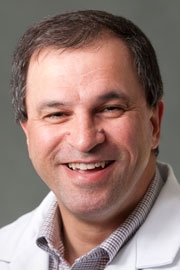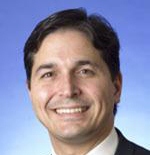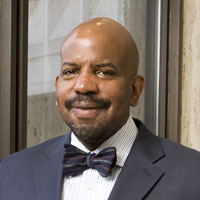Kewa Jiang is originally from Shenzhen, China, but after moving to the US four and a half years ago, she now hails from Glastonbury, CT and graduated from Glastonbury High School. She is a molecular and cell biology major who is also working on minors in chemistry and digital arts. While she enjoys all areas of science, she’s particularly interested in immunology, virology, and parasitology. She also likes drawing on the computer, watching anime with friends, and the card game Dominion. Kewa has volunteered at UConn Health as a research assistant in the psychiatry department, gaining clinical as well as practical experience coordinating events and interviewing people in a professional manner. She’s currently working in Dr. Verardi’s lab in the pathobiology department at Storrs, which she says is challenging but which has given her insight about what to expect from her chosen career path of physician-scientist. Kewa is also a member of the UConn Taekwondo team.
2014 Rowe Scholar: Kewa Jiang
2014 Rowe Scholar: Julise Marsh
Julise Marsh will be a Pre-Pharmacy student at UConn. A resident of Bloomfield, CT, she graduated from Bloomfield High School after having taken part in the HCOP High School Student Research Apprentice Program, which she feels provided her with good exposure to her chosen field. Julise loves playing volleyball in her free time.
2014 Rowe Scholar: John Odoom
John Odoom loves playing basketball and is very proud of the fact that he didn’t quit but worked hard for two years in order to make Stamford High School’s varsity basketball team. Born in Ghana, Africa John now lives in Stamford, CT and is very interested in athletic training and physical therapy. As a basketball player he’s been able to observe the duties and demands of his team’s athletic trainer. He has also taken part in LEAD, a leadership program that provided him with the opportunity to tour Stamford Hospital.
2014 Rowe Scholar: Ornella Tempo
Ornella Tempo is originally from Fusagasuga, Colombia but graduated from Wethersfield High School in Connecticut. Currently a chemical engineering major, her main academic interest lies in tissue engineering while her hobbies include swimming and painting. Ornella has had the opportunity to serve as student assistant to the Institutional Review Board, where she helps with instructor training, and as a research assistant at the Institute of Regenerative Engineering Laboratory. At the lab she has engaged in activities such as cell culture, creating microspheres, and microscopy imaging of microspheres.
2014 Rowe Scholar: Kavisha Thakkar
Kavisha Thakkar is from Newington, CT but has traveled to 54 countries. She enjoys photography and travel and says that her experiences abroad have definitely played a role in her desire to pursue a career in medicine. In pursuit of this goal Kavisha has shadowed ophthalmologists at UConn Health and Veteran’s Hospital, and has conducted research on DNA at Hartford Hospital. She is now following a pre-med track and majoring in physiology and neurobiology at UConn. A graduate of Newington High School and the Greater Hartford Academy of Math and Science, Kavisha has taken part in several HCOP programs, including the Mini Medical Program, the High School Summer Research Program, and the Pre-College Enrichment Program.
Rowe Researcher: Investigating Propargyl-Linked Antifolates
Summer 2012-Spring 2014: Investigating Propargyl-Linked Antifolates in Inhibiting Bacterial and Fungal Dihydrofolate Reductase
By Joshua Andrade, Dr. Amy Anderson’s Lab, and Dr. Dennis Wright’s Lab
Antimicrobial agents have been invaluable in reducing illness and death associated with bacterial infection. However, over time, bacteria have evolved resistance to all major drug classes as a result of selective pressure. The advancement of new drug compounds is therefore vital. The Anderson-Wright Lab has focused on developing potent and selective inhibitors of dihydrofolate reductase (DHFR), an enzyme key in cell proliferation and survival, in several pathogenic species. The lab has found that a set of compounds, known as propargyl-linked antifolates, are DHFR inhibitors that are both biologically effective and have strong pharmacokinetic properties.
The efficacy of novel propargyl-linked antifolates in inhibiting DHFR was tested with enzymatic assays in three species: Candida albicans, Candida glabrata, and Klebsiella pneumoniae. In order to gauge the potency of the novel compounds, the results of the tests were referenced against assay results using trimethoprim, which is a known, powerful inhibitor of DHFR. Additionally, x-ray crystallography was employed to generate a three dimensional representation of inhibitor:pathogen DHFR interactions. The data from the enzymatic assay and x-ray crystallography were utilized to deduce the structural analogs of the propargyl-linked antifolates most effective in inhibiting DHFR in the given pathogens. Knowing what specific molecular features comprise an effective inhibitor allows the lab to strive towards more ideal drug compounds and allows for future development of increasingly powerful antimicrobials.
Rowe Researcher: Measuring Viral Titer to Analyze Transduction Efficiency in Induced Pluripotent Stem Cells
Spring 2011: Measuring Viral Titer to Analyze Transduction Efficiency in Induced Pluripotent Stem Cells
By Dr. X. Cindy Tian, Yong Tang, and Michael Tassavor
Stem cells have the ability to dramatically change the medical landscape, allowing regrowth and regeneration of tissues previously irreparable to modern science. Severe burns, spinal breakages, and muscle damage all can benefit, as well as more abstract diseases such as Parkinson’s, Multiple Sclerosis, and cancer. Until quite recently, however, sources for stem cells were limited to embryonic material.
In 2007, researchers managed to convert specialized adult cells to pluripotent stem cells capable of taking any somatic form in mice. This is highly useful in that it negates any need for embryonic stem cells in stem cell therapy, sidestepping legal and moral issues, as well as public outcry. Furthermore, it allows customized cells grown from the patient’s own cells, preventing immune rejection. Non-embryonic stem cells also have the benefit of allowing research to proceed with government grants, which, depending on the state and federal agencies involved, prohibit embryonic stem cell research.
The method used to produce induced pluripotent stem cells is the utilization of viral vectors to integrate genetic material that codes for proteins that initiate conversion to stem cells. The expression of certain genes, such as those out of the Sox family, and their associated proteins initiates the transformation of somatic cells into stem cells close in nature to embryonic stem cells.
Boosting the efficiency of the vectors is important in making this process clinically useful. Thus, the lab is currently tweaking the process to improve integration and make results more consistent and allow more reproducible results. However, currently the lab is unable to determine efficiency in an accurate or timely manner. By determining viral titer, one can correlate the amount of viral material used and the outcome, allowing better analysis of transduction and the overall efficiency of the process. The goal is to determine just exactly how much integration each exact amount of viral material achieves in the adult cells.
This experiment is essentially an assay and will involve the measurement of viral titer at known amounts to create a verifiable standard curve. Once established, accurate measurement of viral content in research samples will be measured to allow critical analysis of the transduction procedure currently employed in the lab.
2014 Rowe Scholar: Jeremy Figueroa-Ortiz
Jeremy Figueroa-Ortiz recently returned from a dental mission trip to the Galapagos Island of Isabella, where he, dental students, and dentists provided free dental care. An allied health sciences major with interests in dentistry and policy, Jeremy has also taken part in a clinically based pilot study called Project Good Oral Health, which focused on the oral health of geriatric communities and preventative health education. Jeremy is a bilingual (English and Spanish) graduate of Farmington High School who hails from New Britain, CT.
2014 Rowe Scholar: Ivan Navarro
Hailing from Bristol, CT, Ivan Navarro graduated from Bristol Central High School where he started a chess club in order to share his love of the game. A pre-pharmacy student at UConn, Ivan’s interest in a career in the health professions was significantly influenced by his mother, who is a CNA (Certified Nursing Assistant).
Rowe Researcher: Effects of mutants in the I-domain on Bacteriophage P22 coat protein stability and mature capsid structure
February 2014-Present: Effects of mutants in the I-domain on Bacteriophage P22 coat protein stability and mature capsid structure
By Fejiro Okifo, Kevin Robbins, Dr. Carol Teschke
Department of Molecular and Cell Biology, University of Connecticut, Storrs
As common as the rhinovirus that visits itself upon us every flu season and as insidious as the HIV virus that causes AIDS, viruses have been afflicting the human race since the dawn of time. And yet there is still much to discover about the mechanism by which they infect their hosts. The purpose of this project is to understand the structural and dynamic components of viral infection. Structural information concerning protein interactions that occur during capsid assembly from the earliest and transient stages through maturation is not completely understood. Substantial subunit rearrangements have been observed in the formation of mature viral particles. I intend to use bacteriophage P22, a double-stranded DNA virus, as a model system in order to study virus assembly. P22 is ideal because a large number of dsDNA viruses including the Herpesviridiae use a common protein fold known as the HK97 fold as their major capsid protein. This HK97 fold contains extra domains in some viruses. In P22, the HK97 fold is termed the coat protein (CP) and contains a domain called the insertion domain, or I-domain, that is essential for coat protein folding and assembly into the mature virion. When this I-domain coat protein is absent, folding and consequently assembly is inhibited. I hypothesize that the I-domain serves as the folding nucleus of the coat protein. Known substitutions within the I-domain of the full-length coat protein lead to the formation of petite or incomplete mature capsids. This experiment will investigate how the substitutions affect I-domain structure and stability using techniques such as circular dichroism and NMR (Nuclear Magnetic Resonance) to gain atomic scale detail on the intra- and intermolecular interactions within the I-domain and within domains of full-length coat protein. The atomic-scale structural information gained from the NMR studies on the I-domain will identify important interactions required for stability and structural identity of the I-domain. These interactions will then be studied in order to better understand protein stability and protein assembly. Understanding how these capsids are assembled will assist in the development of antiviral drugs. P22 capsids are also proving useful in the field of nanotechnology and drug delivery platform. With viruses mutating millions of times faster than our own genome, it is especially crucial to investigate novel ways to dismantle virus assembly in order to fight virus-related diseases that plague myriads of people. Thus, the medical implications of this research are vast.
2014 Rowe Lecture
Michal Assaf, M.D.
Director, Autism & Functional Mapping (AM-FM) Laboratory,
Olin Neuropsychiatry Research Center, Institute of Living at Hartford Hospital;
Assistant Professor, Department of Psychiatry,
Yale University School of Medicine; Visiting Assistant Professor of Neuroscience,
Trinity College Institute of Living
Functional MRI – How Emerging Technology Is
Transforming Diagnosis and Treatment of Neuropsychiatric Disorders
Wednesday, April 9, 2014 at 5:00 pm in the Student Union Theatre
Dr. Michal Assaf has studied mental illnesses by implementing cognitive neuroscience and advanced neuroimaging methods such as fMRI and DTI. Her research encompasses a variety of brain disorders including autism, schizophrenia, bipolar disorder, Alzheimer’s disease, and anxiety disorder, as well as substance abuse and addiction. In addition to her research activities, Dr. Assaf leads the Presurgical Functional Mapping program at Hartford Hospital in collaboration with the Department of Neurosurgery, and directs the implementation of structural and functional navigation for the Transcranial Magnetic Stimulation (TMS) research program.
After earning her M.D. at Tel Aviv University, Dr. Assaf completed a postdoctoral fellowship in the Division of Psychiatric Neuroimaging at the Johns Hopkins University School of Medicine. In 2004, she joined the Olin Neuropsychiatry Research Center at the Institute of Living. Dr. Assaf has been collaborating with researchers from Yale University’s Psychiatry Department, Comparative Medicine Department, and Child Study Center, as well as researchers from the University of Connecticut’s Department of Psychology, the Wohl Institute for Advanced Imaging in Israel, and the Mind Research Network. Dr. Assaf is a member of the Society for Neuroscience, the International Society for Autism Research, and the Organization of Human Brain Mapping.
Return to The John and Valerie Rowe Scholars Visiting Lecture
2013 Rowe Lecture
Gregory Tsongalis, Ph.D., H.C.L.D., C.C.
Professor of Pathobiology; Director, Molecular Pathology;
Co-Director, Translational Research Program;
Co-Director, Pharmacogenomics Program;
Dartmouth Hitchcock Medical Center and The Audrey
and Theodor Geisel School of Medicine at Dartmouth
The Digital Human: How Genomics is Impacting You
Wednesday, April 3, 2013, 7:00 pm, Student Union Theatre
Dr. Tsongalis completed his undergraduate studies at the University of Massachusetts at Amherst in Zoology and Chemistry. After receiving his BS degree, he attended Quinnipiac College where he received a Masters of Health Science as a PA in Pathology. He received his Ph.D. in Pathology from the University of Medicine and Dentistry of New Jersey and completed his postdoctoral training in Pathology and Laboratory Medicine at the University of North Carolina at Chapel Hill.
After completing his training, Dr. Tsongalis became the first Director of Molecular Pathology at Hartford Hospital. During his tenure there, he became an adjunct faculty member in the School of Allied Health at the University of Connecticut and taught lectures and labs in the Diagnostic Genetic Sciences program.
Dr. Tsongalis’s area of expertise is in clinical molecular diagnostic applications for genetic, hematologic, infectious, and neoplastic diseases. His research interests are in the pathogenesis of solid tumors, disease association of single nucleotide polymorphisms (SNP) genotyping, and personalized medicine.
Dr. Tsongalis has been the recipient of numerous investigator/scientist awards. He is a past president of the Association of Molecular Pathology. He is on the editorial board of Clinical Chemistry, the Journal of Molecular Diagnostics, the Archives of Pathology and Laboratory Medicine, the Journal of Clinical Virology, Experimental and Molecular Pathology, and several others. He also serves on numerous corporate scientific advisory boards.
Return to The John and Valerie Rowe Scholars Visiting Lecture
2012 Rowe Lecture
Vlad Coric, M.D.
Associate Clinical Professor, Yale University
New Clues to Understanding Alzheimer’s Disease
Tuesday, April 17, 2012, 7:00 pm, Student Union Theatre
Dr. Coric completed his undergraduate degree as an Honors Scholar in Physiology and Neurobiology at the University of Connecticut and earned his medical degree at Wake Forest University School of Medicine. He completed his internship at Yale-New Haven Hospital and his residency at Yale University School of Medicine’s Psychiatry Residency Training Program. He served as Program-Wide Chief Resident in the Yale University School of Medicine’s Department of Psychiatry and as Chief Resident at the VA Connecticut Healthcare System’s National Center for Post-Traumatic Stress Disorder. Dr. Coric completed sub-specialty training at Yale University School of Medicine’s Division of Law and Psychiatry in Forensic Psychiatry.
Dr. Coric is currently Group Director of Neuroscience Global Clinical Research at Bristol-Myers Squibb and Associate Clinical Professor of Psychiatry at the Yale University School of Medicine, where he directs late stage clinical research trials focused on the use of gamma secretase inhibitor (GSI) studies in Alzheimer’s Disease. His research interests also include the neurobiology and treatment of mood/anxiety disorders, OCD, post-traumatic stress disorder, psychobiological indices of stress, psychotic disorders, and substance abuse/dependence.
Dr. Coric has served as the Chief of Inpatient Services at the Yale Clinical Neuroscience Research Unit and is a founding partner of New Haven Forensic Consultants, LLC. Dr. Coric is the Immediate-Past President of the Connecticut Psychiatric Society (a district branch of the American Psychiatric Association) and is currently President of the Yale Psychiatry Alumni Association. Dr. Coric has over 45 peer-reviewed journal and book publications, and interviews with him have appeared in Scientific American, Time, and Men’s Health.
Return to The John and Valerie Rowe Scholars Visiting Lecture
2011 Rowe Lecture
Steven Strongwater, M.D.
Chief Executive Officer of Stony Brook University Medical Center
Health Care Reform and the Future of Medical Education
Tuesday, April 12, 2011, 7:00 pm, Student Union Theatre
Dr. Steven Strongwater became the Chief Executive Officer of Stony Brook University Hospital in 2007. Prior to this, he served as Associate Dean for Clinical Affairs, the Director of Clinical Operations, and Hospital Director for the University of Connecticut Health Center from 1996 to 2006.
Over the years, Dr. Strongwater has worked on a broad range of issues including performance improvement, faculty governance, clinical resource management, patient safety, and clinical outcomes. He trained at SUNY Upstate Medical Center in Internal Medicine and the University of Michigan in Rheumatology. He is boarded in both Internal Medicine and Rheumatology, serving as a founding fellow of The American College of Rheumatology, and is actively engaged nationally through a variety of professional associations.
Deeply committed to quality and performance improvement as well as models to improve patient satisfaction and employee morale, Dr. Strongwater has been recognized for incorporating the latest medical innovations into the academic medical center. He was instrumental in Stony Brook University Medical Center receiving the Healthcare Association of New York’s (HANYS) Pinnacle Award for Quality and Patient Safety and the Nassau Suffolk Hospital Council’s inaugural Excellence in Patient Safety Award, both in 2009.
View Dr. Strongwater’s presentation or lecture (video courtesy of UCSPAN).
Return to The John and Valerie Rowe Scholars Visiting Lecture
2010 Rowe Lecture
Robert Galvin, M.D., M.P.H., M.B.A.
Commissioner, Connecticut Department of Public Health
Autism: Myth, Legend, and Science
March 30, 2010, 7:00 pm, Student Union Theatre
Dr. Robert Galvin was appointed Commissioner of the Connecticut Department of Public Health on December 1, 2003. He has broad experience in the field of medicine and public health. Dr. Galvin has been a physician since 1965, and over the course of his career has practiced primary care, emergency, and aviation medicine. As Commissioner, Dr. Galvin’s priorities include public health preparedness, children’s health, and eliminating health disparities. He is also committed to ensuring quality health care for all Connecticut residents.
View Dr. Galvin’s presentation.
Return to The John and Valerie Rowe Scholars Visiting Lecture
2009 Rowe Lecture
Joan Y. Reede, M.D., M.P.H., M.B.A.
Dean, Diversity and Community Partnership, Harvard Medical School
Remembering the Past While Creating the Future
Appointed as the first Dean for Diversity and Community Partnership at Harvard Medical School (HMS), Joan Y. Reede is responsible for the development and management of a program that provides leadership, guidance, and support to promote the increased recruitment, retention, and advancement of under-represented minority faculty. In addition, she holds the appointments of Associate Professor of Medicine at HMS, Associate Professor of Society, Human Development, and Health at the Harvard School of Public Health, and Assistant in Health Policy at Massachusetts General Hospital.
Dr. Reede has created and developed more than 16 programs at HMS that aim to address pipeline and leadership issues for minorities and women who are interested in careers in medicine, academic and scientific research, and the healthcare professions. In addition, Dr. Reede founded the Biomedical Careers Program in collaboration with the Massachusetts Medical Society and the New England Board of Higher Education.
Dr. Reede’s numerous awards include the Boston NAACP Health Award, the Community Service Award from the Epilepsy Association of Massachusetts, the American Association of University Administrators Exemplary Models of Administrative Leadership Award, and was named a Center for Disease Control and Prevention/University of California Public Health Leadership Institute Scholar. She was recognized by Modern Healthcare magazine as one of “the top 25 minority executives in healthcare” and by Ebony magazine as a “medical mover and shaker”.
On the national level, Dr. Reede was appointed to the Health and Human Services Advisory Committee on Minority Health, and has served on the Board of Governors for the Warren Grant Magnuson Clinical Center, the National Advisory Dental and Craniofacial Council of the National Institutes of Health, the Secretary’s Advisory Committee on Genetics, Health, and Society, and as a Commissioner of The Sullivan Commission on Diversity in the Healthcare Workforce. Locally, former Massachusetts Governor Jane Swift appointed Dr. Reede to the Board of Directors of the John Adams Innovation Institute of the Massachusetts Technology Collaborative.
Return to The John and Valerie Rowe Scholars Visiting Lecture
2008 Rowe Lecture
Carolyn D. Runowicz, M.D.
Director, Neag Comprehensive Cancer Center
The Answer to Cancer…
Carolyn Runowicz, M.D., is a nationally and internationally recognized expert in women’s health, specifically gynecologic cancer. Her research career has been highlighted by developing innovative clinical trials in gynecologic oncology, with more than 200 publications. She is currently the Cancer Center Director at the Neag Comprehensive Cancer Center, holds the Northeast Utilities Chair in Experimental Oncology, and is Professor of Obstetrics & Gynecology at the University of Connecticut School of Medicine, Farmington, CT.
Dr. Runowicz has held many leadership positions in national organizations. She was the first female president of the Society of Gynecologic Oncologists in 2000. In November 2005, she was the national President of the American Cancer Society. She was recently appointed by President Bush to serve as a member of the National Cancer Advisory Board for a six year appointment and then, in August 2006, President Bush appointed her to serve as Chair on the National Cancer Advisory Board for a two year appointment. She has established the gynecologic follow-up protocols for women with breast cancer who are on selective estrogen receptor modulators, for treatment, adjuvant, and preventive settings. She has also testified before the Senate on mammographic screening.
As an educator, Dr. Runowicz has a long track record of teaching and mentoring medical students, residents, and fellows. Her career has demonstrated a focus and commitment to clinical practice, research, teaching, and administration. She is the author of several books for the public, including her most recent book, “The Answer to Cancer”.
Return to The John and Valerie Rowe Scholars Visiting Lecture
2007 Rowe Lecture
Wendy Everett, Sc.D.
President, New England Healthcare Institute
Partnering with Patients in the 21st Century
Dr. Wendy Everett was appointed as the first President of the New England Healthcare Institute (NEHI) in July 2002. NEHI was established to identify realistic strategies for improving health care quality while reducing health care costs. Dr. Everett directs a team that conducts independent research leading to evidence-based public and private health policy recommendations. With over thirty years of experience in the health care field, Dr. Everett brings a unique perspective to NEHI. She has held executive positions at the University of California, San Francisco Medical Center and at Brigham and Women’s Hospital in Boston. In the 1980s, she directed a national demonstration program for The Robert Wood Johnson Foundation and subsequently was the Program Director for the National Program in Health Promotion and Disease Prevention for the Kaiser Family Foundation.
Dr. Everett has served as a consultant to many state and national philanthropic foundations. In the mid 1990s, she became a Director of the Institute for the Future, leading the Health and Health Care research team for six years and overseeing the creation of ten-year, national forecasts in health/health care. She is a Trustee of many health care and philanthropic boards and currently chairs the board of the Health Technology Center.
Return to The John and Valerie Rowe Scholars Visiting Lecture
2006 Rowe Lecture
Joseph Civetta, M.D.
Professor and Vice-Chairman, Department of Surgery at the UConn Health Center
Beyond Technology: The Principles of Medicine
Dr. Joseph M. Civetta received a 2005 Lifetime Achievement Award from the Society of Critical Care Medicine for his numerous scientific and clinical advances in critical care medicine. A leader in his field, Dr. Civetta has worked continuously to improve the quality of care delivered to critically ill patients. He has been an innovator in the areas of cardiovascular monitoring in critical care and ventilatory support, among others. His research focuses on prevention of multiple organ system dysfunction.
Dr. Civetta served as the Program Director of the Integrated General Surgery Residency at the UConn Health Center. He has authored or edited more than 350 publications and has received numerous awards and honors. A graduate of the College of the Holy Cross and Boston University School of Medicine, Dr. Civetta is a dedicated teacher who has held posts at Harvard Medical School and the University of Miami School of Medicine. His professional and honorary memberships include: the American Academy of Pain Medicine, the American College of Surgeons: Palliative Care Workgroup, and the American Surgical Association.
View Dr. Civetta’s presentation.
Return to The John and Valerie Rowe Scholars Visiting Lecture
2015 Rowe Lecture
Cato T. Laurencin, M.D., Ph.D.
University Professor, UConn;
Chief Executive Officer, Connecticut Institute for Clinical and Translational Science (CICATS);
Director, Institute for Regenerative Engineering;
Endowed Chair Professor, Department of Orthopaedic Surgery, UConn Health Center;
Tenured Professor, School of Engineering
Dr. Laurencin previously served as the UConn Health Center’s Vice President for Health Affairs and Dean of the UConn School of Medicine. Prior to that Dr. Laurencin was the Lillian T. Pratt Distinguished Professor and Chair of the Department of Orthopaedic Surgery at the University of Virginia, as well as the Orthopaedic Surgeon-in-Chief at the University of Virginia Health System. In addition, he was designated as a University Professor at the University of Virginia by the President and held professorships in biomedical engineering and chemical engineering.
Dr. Laurencin earned his undergraduate degree in chemical engineering from Princeton University and his medical degree, Magna Cum Laude, from the Harvard Medical School. During medical school, he also earned his Ph.D. in biochemical engineering/biotechnology from the Massachusetts Institute of Technology.
An expert in shoulder and knee surgery, Dr. Laurencin has been named to America’s Top Doctors and America’s Top Surgeons. He is a Fellow of the American College of Surgeons, a Fellow of the American Academy of Orthopaedic Surgeons, and is one of a few orthopaedic surgeons elected to the American Surgical Association. He is the winner of the Nicolas Andry Award from the Association of Bone and Joint Surgeons.
Dr. Laurencin’s research involves tissue engineering, biomaterials science, nanotechnology and stem cell science, and a new field he terms ‘regenerative engineering’. He is an International Fellow in Biomaterials Science and Engineering, a Fellow of the American Institute for Medical and Biological Engineering, and a Fellow of the Biomedical Engineering Society. His work was honored by Scientific American Magazine as one of the 50 greatest achievements in science in 2007. Dr. Laurencin was named the 2009 winner of the Pierre Galletti Award by the American Institute for Medical and Biological Engineering at its centennial celebration. Dr. Laurencin is active in technology development. In 2012 his work in musculoskeletal tissue regeneration was featured in National Geographic Magazine’s “100 Discoveries that Changed Our World” edition. In addition, he received the Technology, Innovation and Development Award from the Society for Biomaterials in 2013 for key scientific and technical innovation and leadership in translational research.
Dr. Laurencin’s work in mentoring students is well known. He received the Presidential Award for Excellence in Science, Mathematics and Engineering Mentoring in ceremonies at the White House in 2010 and the Beckman Award for Mentoring in 2012. Most recently Dr. Laurencin was honored by the American Association for Advancement of Science, receiving the AAAS Mentor Award.
Dr. Laurencin has lectured throughout the world on clinical orthopaedic surgery and musculoskeletal research. He is an elected member of the Third World Academy of Sciences, and an elected member of the African Academy of Sciences.
Dr. Laurencin is active in science and health policy. He has been a member of the National Science Foundation’s Advisory Committee for Engineering (ADCOM), and has served both on the National Science Board of the FDA and the National Advisory Council for Arthritis, Musculoskeletal and Skin Diseases at the NIH. Dr. Laurencin is currently a member of the National Academies Board of Life Sciences, and the National Academies Division Committee on Engineering and Physical Sciences (DEPSCOM). He currently holds appointments by the Secretary of Health and Human Services to the National Advisory Council for Biomedical Imaging and Bioengineering, and the Advisory Committee to the Director of the National Institutes of Health.
Return to The John and Valerie Rowe Scholars Visiting Lecture




















